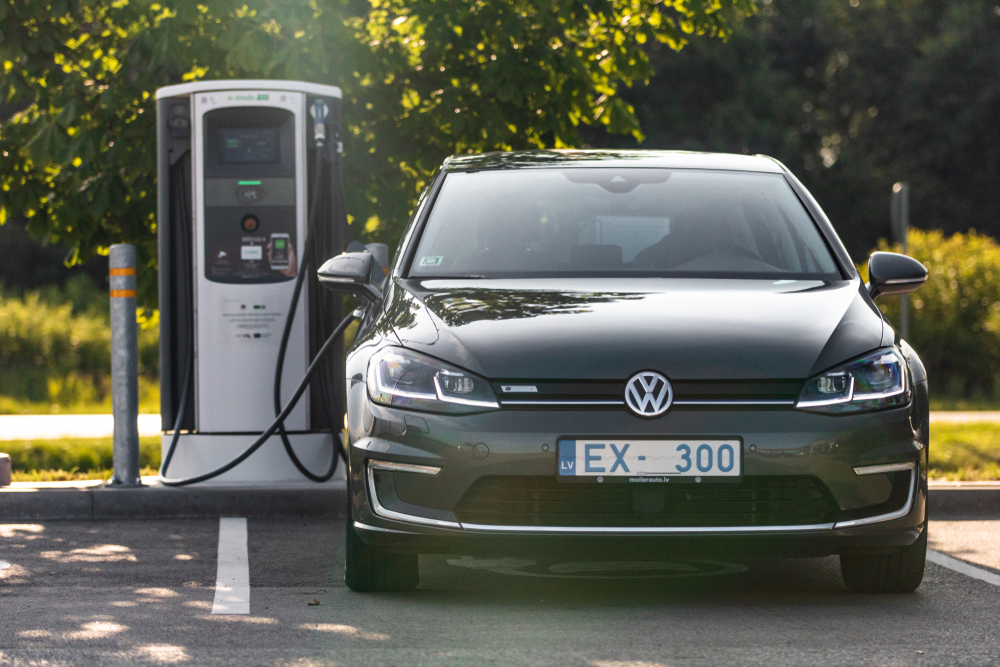Electric cars are the future. That much is clear from the bets being made by both business and government. European, Japanese, and Korean companies have all committed to mostly-electric fleets by the early 2020s, and even American companies are seriously considering it. Petro-Can is currently building a coast-to-coast network of fast-charging stations to allow EVs to drive clear across the country. There will come a time when most cars for sale are EVs.
However, that future isn’t here yet. If you’re reading this, you probably drive an internal combustion vehicle. So, should you switch? If so, now, or later? Check out the pros and cons of electric cars below.

Pros of EVs
- EVs are more efficient. EVs are fundamentally more efficient than combustion engines. With a gasoline engine, about 4/5s of the engine’s energy is either burned as waste heat, or used to power the radiator to get rid of said waste heat. Therefore, even if our electrical grid ran on 100% oil-powered plants, EVs would still be the environmental choice. However, our grid uses much less.
- Electricity is very clean (in Ontario). In Ontario, only 27% of electricity comes from fossil fuels, and most of that is from low-emission gas plants. The rest is provided by an almost-equal mix of nuclear and renewables, which produce no net carbon emissions.
- EVs are better for our health. The few fossil fuels that are burnt to provide electricity are burnt far away from urban cores. By contrast, gasoline engines burn their fuel right in the middle of the GTA, creating exhaust that is breathed by millions of people. Air pollution is considered a leading cause of death in Canada, so every EV could potentially save lives.
- EVs are quiet. They protect the hearing of both passengers and the community.
- EVs are simple. EV engines are much simpler than combustion engines, and require far fewer replacement parts.
However, it’s not all good.

Cons of EVs
- Manufacturing still has a footprint. Among the steps in building an EV are:
- Mining rare earths to make the power cell, and
- Transporting parts to and from factories across the globe.
- Blasting the steel in a furnace to harden it,
These all have a large carbon footprint. Worse, your new EV will someday need to be recycled, which also impacts the environment. If you include manufacturing and disposal, an EV produces about half the emissions as a normal car over the course of its life. It’s greener than buying a new gas-guzzler, but may not be greener than buying a good used car.
- Limited Range. An EV is great for a downtown commute, but not so great for a quick trip up to Algonquin Park. If you plan to spend time in cottage country, you might end up renting a normal car to avoid long charge times on your trip.
- Few Charging Stations. Charging stations are easier to find in the GTA than in most areas, but “easier” is not the same thing as “easy.”
Will Electric Cars Save You Money in the Long Run?

Yes. Well, probably.
If you’re buying a new car anyway, an EV is absolutely the smart financial choice. In upfront costs, an EV will cost about $5000-$10,000 more than its equivalent gas-powered car, not counting the offset provided by provincial rebates.
However, an EV will cost less in maintenance over time. Because of lower expected maintenance, insurance is usually cheaper as well. And of course, charging an electric car costs between $400 and $1000 less per year than gassing up a normal car.
Moreover, consider whether either of these scenarios seem likely:
- Governments continue to drive up the price of gas, through either taxes or regulations.
- A war breaks out in the Persian Gulf.
Not unlikely, right? Given these risks, it’s not a terrible idea to hedge against a gas price spike and buy an EV.
Compared to Used
However, the calculation is very different if you already have a car, or are considering buying used. It is difficult to imagine that a $40,000 Tesla could cost less over its lifetime than a solid $10,000 used sedan.
How Long of a Distance Can You Drive an Electric Car?
These days, the average EV can drive about 300 km on a single charge. However, we wouldn’t recommend pushing up against that limit. You will need to always leave yourself some wiggle room in case your battery runs out early.
Range varies greatly by make and model. Commuter EVs can top out at 150 km, while EV SUVs often can go 500 km or more.
How Often Do You Have to Replace The Battery of an Electric Car?
Most manufacturers guarantee their batteries for 8 years. You might get lucky and have a battery that lasts longer, up to 12 or 13 years, but we wouldn’t count on it. Expect a replacement to cost between $2000 and $6000.
What is the Best Electric Car to Buy in 2020?
It's not available yet, but we’d say 2020’s best electric car will be the BMW i4. The combination of luxury, power, and claimed range (700 km!) can’t be beat. A strong competitor to the Tesla Models S.
Source: Car Magazine
We’re also giving honorable mentions to more affordable models, including Volvo’s Polestar 2 and the Tesla Model 3.
Source: Polestar and InsideEVs
However, if you only need a vehicle for commuting, the best value for money is the Electra Meccanica Solo, a one-seat, three-wheel vehicle built by a Canadian startup.... If three wheels is your kind of thing.
Source: Electra Meccanica
If three wheels is one short of perfect for you however, the "best EV for your money" question is a hard one to answer with certainty given the range of options out there. If you just want the cheapest EV out there, the Kia Soul EV will probably be what you are looking for starting at $42,000 CAD.
In other cases, if interior luxury, longer range and blistering 0-60 times is something you highly value, then maybe spending double or triple the price of a Kia Soul on a Tesla Model S P100D is the best option for you.
Either way, since EVs are pricey, we recommend renting one before you buy it.
How Long Does it Take to Charge an Electric Car?
Depends on the charger! A 120-volt outlet will give the average car about 150 km of charge in 12-15 hours. Because this is a little slow, many EV owners install 240-volt charging stations in their garages, which cost about $1000 and cut charging time in half.
Still, public EV charging stations, like the ones available at some Petro-Can locations, are far superior. They provide as much current as 20-30 outlets, and can charge a car to full in about half an hour.
Are Electric Cars Expensive to Service?
EV maintenance is less expensive than normal car maintenance due to the simplicity of the parts. Without fuel to aerate, there is no need for fuel injection. Instead of a set of 4-8 cylinders connected to a crankshaft, there’s just a single axle run through a magnetic coil. Without all the waste heat produced by combustion, cooling systems are smaller and simpler. And of course, there is no exhaust system: no manifold, no muffler, no converter, no tailpipe.
Source: HybridCars
EVs only need to use their disk brakes under very heavy braking. To stop normally, the engine turns into a generator, using the rotation of the axle to recharge the battery.
With fewer parts, there is a smaller chance of anything breaking.
That said, battery replacement is a large, and inevitable, expense, so remember to include that in your financial plans.
What Government Incentives Are There for Electric Cars in Ontario?
The provincial government does not provide incentives, but the federal government does. The feds will reimburse you up to $5000 for a hybrid, as long as it:
- costs less than $45,000,
- is a more expensive trim of a $45,000 vehicle, costing no more than $55,000, or
- has seven seats or more and costs no more than $55,000.
You can see the policy details on the Transportation Canada web page.
Find the Perfect Electric Vehicle within the next 10 Seconds
